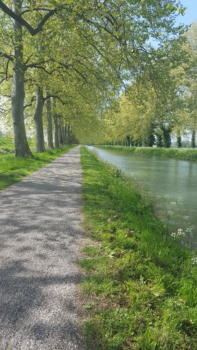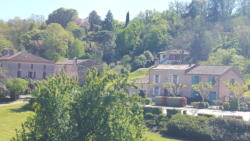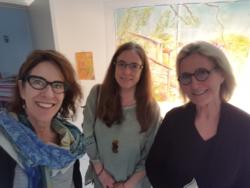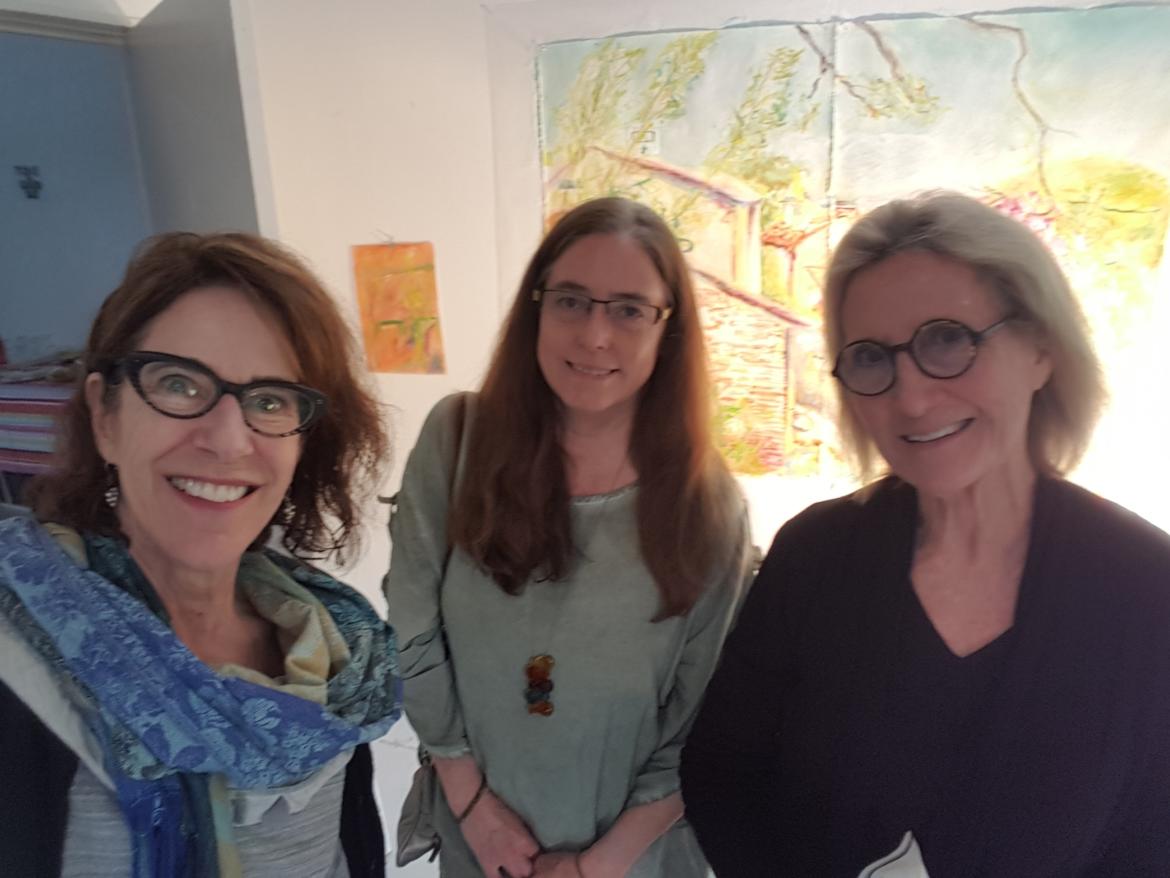

It is 8:00 am on a Sunday morning in the Garonne Valley of France. I lie in bed drinking coffee and listening to overlapping church bells, some from the village up the hill, other from across the river. The birds, swallows and mourning doves, are out in full force. I savor the slow waking, the gentle call to action.
I have been here at this artists’ residency for three weeks. I am thousands of miles and nine times zones removed from home. The others here with me are visual artists; another writer recently joined us a few days ago. Our primary focus here is our creative work. We take fabulous breaks to shop at local markets, or make communal meals, or do a bit of sightseeing, but the bulk of each day is devoted to working.
I have been fascinated to watch the two painters and the photographer go about their work. From the moment of arrival their eyes were alert to the visual gifts of this fertile countryside, the markets, the ancient villages. There is a neat geometry and intentionality in the landscape one doesn’t often see in the United States. The symmetrical planting of trees (a Napoleonic legacy), the furrowed fields, even the frequent roundabouts attest to an impressive planfulness in this culture. Nothing here feels careless. The same care is brought to the buildings. Examples abound of centuries-old houses that have been renovated and/or repurposed without eradicating the visual presence of what came before, the old cohabiting comfortably with the new.
I am reporting what I see, but I am quite sure the visual artists see much more. What astonishes me is how this new place, this Frenchness, has penetrated their work. At the open studios last week the imprint was already observable. One woman captured the pastoral geometry in bold painted canvases, another displayed portraits of French politicians and studies of Baudelaire. The photographer had done a range of portraits of selected local residents.
For me, as a fiction writer, it has been quite different. I came here to finish final edits on a novel that is now done. Then, I completed a draft of a short story and a short article, both of which were begun back at home. Now, with ten days left, I am about to dive into rewriting yet another piece, also originally drafted in the U.S. It is unlikely that anyone would be able to identify, in the work I’ve done here, the influence of this place. Nor do I think if I were to begin something entirely new that it would show much clear evidence of French influence. Sensing this has made me ruminate (yet again) on the genesis of fictional ideas.
Life experiences certainly can give rise to ideas for stories, but in my case—and I would guess this is true for most writers—those experiences need to be fully digested and filtered and distilled to some emotional essence, then synthesized with other distilled observations and experiences before they become useful as fictional material.
I will not be writing soon about the clerk at the corner market who joked with me (in French) that he wanted his picture on the bag he gave me, or the young local artist, Florian, with the unruly black hair who acknowledges me as I pass and he is smoking outside his studio. (He and his musician friend came to the open studios where we shared an enthusiastic conversation that hopped from French to English and back.) Nor will I be writing about the ex-pat Dutch and English who have made their homes here, or the wealthy French man with the Swedish wife who bought a castle and chiseled away at the renovated walls to create an entrance that thrusts you back in time, making you feel you’ve stepped into the Middle Ages. Nor will my fiction feature the young French woman, Samantha, who is looking for work as a designer and asked me for help translating her resume into English. As I worked with her I was reminded, rightly or wrongly, of a young me.
These people and my encounters with them have entered me in different ways; some I’ll remember, some I won’t. They may make an appearance in my fiction someday, but if they do it probably won’t be for years, when I’ve understood the ways they’ve touched me, and my encounters with them have been distilled into meaning that rises above anecdote. Even then, whatever I’m pilfering from my experience here now will have its DNA altered and won’t be recognizable to anyone but me.

Add Comment